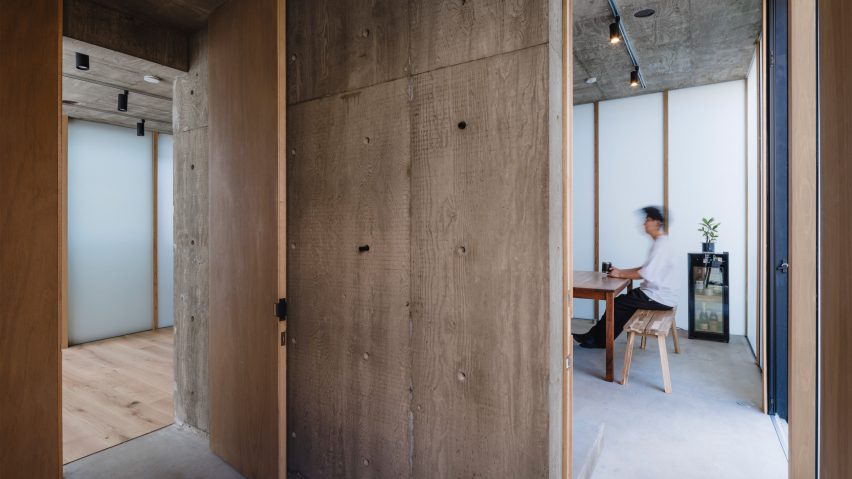
Translucent glazing and concrete encase compact Japanese home by IGArchitects
Large translucent windows bring a lantern-like quality to Check Patterned House, a concrete home in Saitama, Japan, completed by local studio IGArchitects.
Designed for a family of three with a limited budget, the home occupies a 70-square-metre site and is planned around two large concrete blocks.
These blocks provide structural support and contain service spaces, allowing the remaining walls to be finished with full-height glazing, creating a gridded facade that informed the project's name – Check Patterned House.
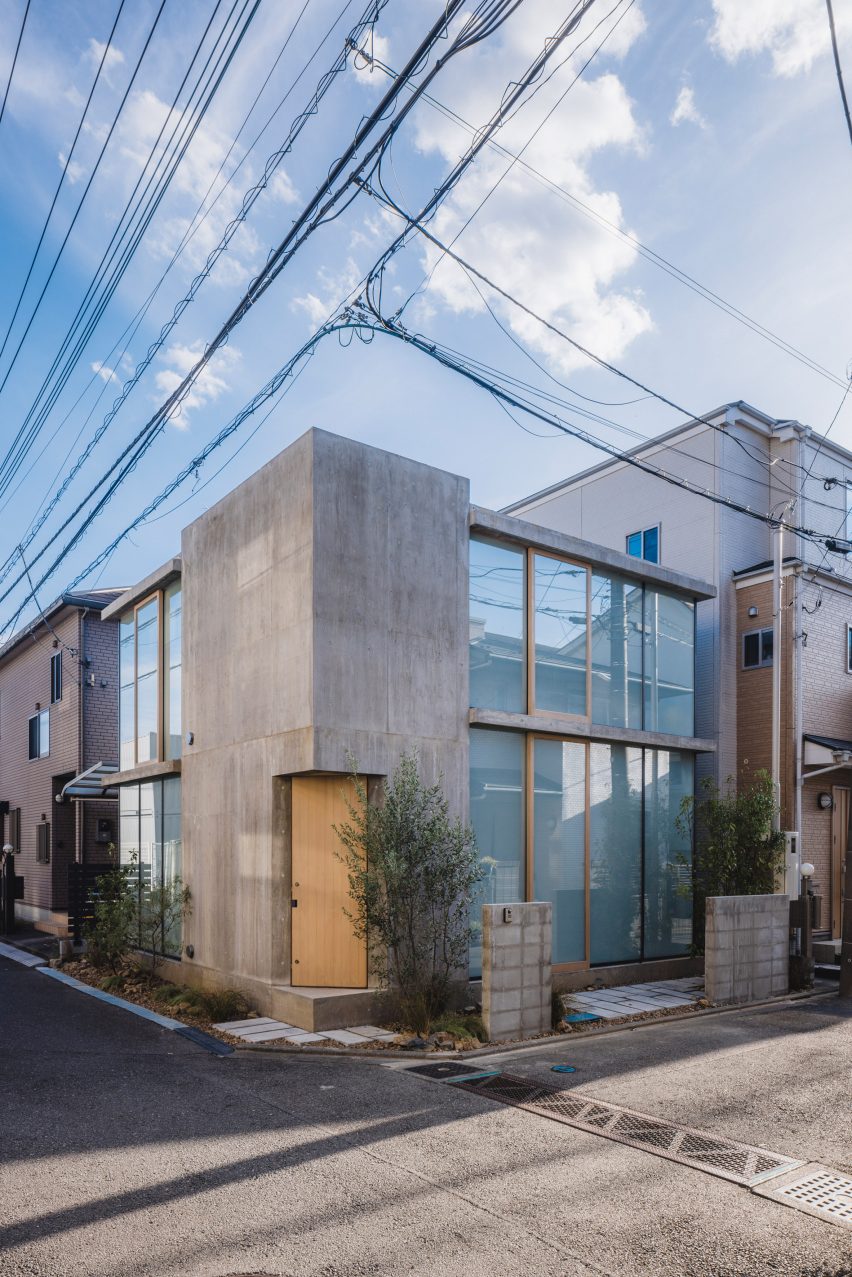
"Since the site is a prominent corner lot, we thought of a heroic way to build it that would be appropriate for the site," IGArchitects founder Masato Igarashi told Dezeen.
"As it would be costly to build a foundation for the entire building, two concrete blocks were erected like columns, and slabs were cantilevered from these concrete blocks without foundations," it continued.
"These wall pillars enclose private functions which don't require big windows, such as entrance, bathroom, toilet, storage, and pipe space," he added.
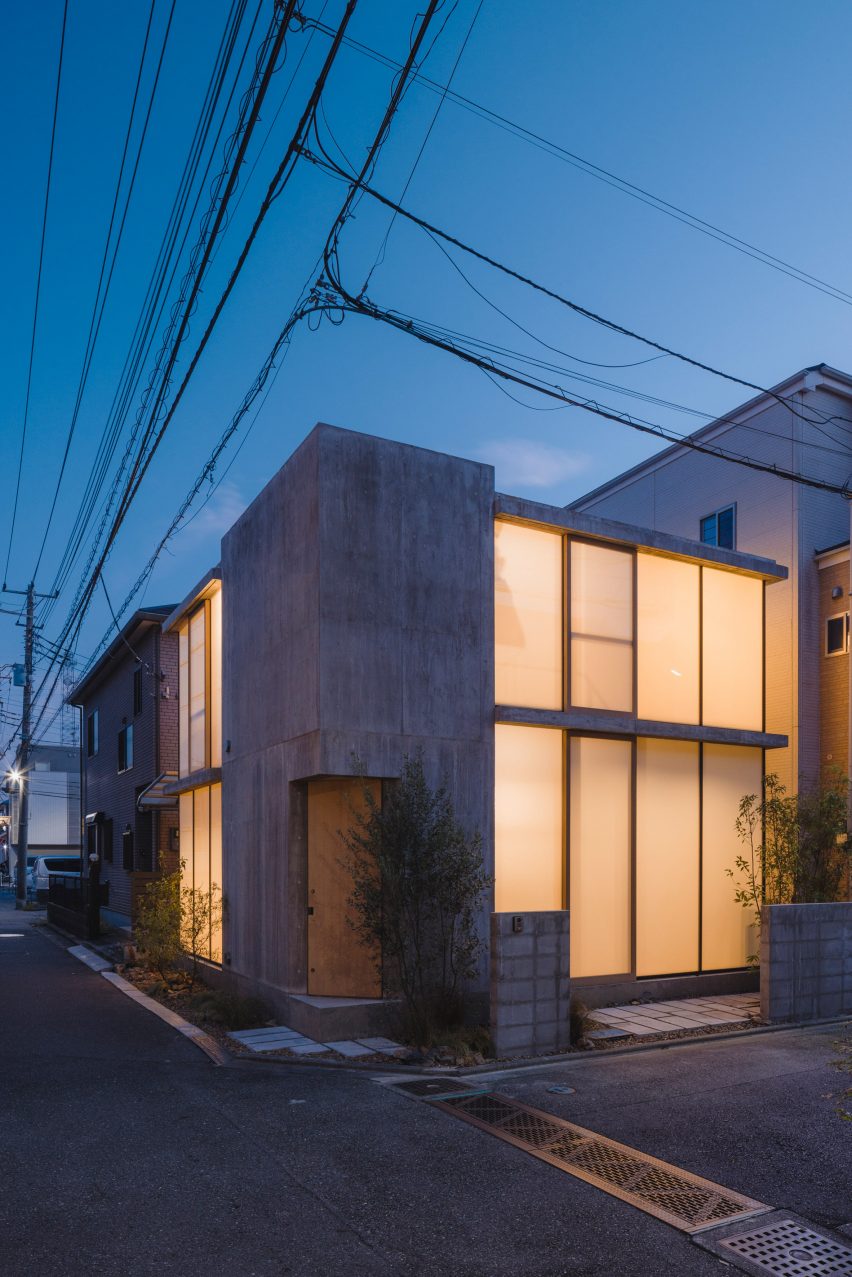
Located at the northeastern and southwestern corners of the site, the concrete volumes are bridged by open living areas and bedrooms across the home's two storeys.
These living spaces are wrapped by translucent glazing to provide light while maintaining privacy. At night, the glow from the glass creates a lantern-like effect.
Check Patterned House's entrance leads through into an open-plan living, dining and kitchen space opposite a bedroom, with a concrete stair leading up to a second bedroom and a workspace.
Wood-framed, sliding windows in the translucent facade allow both floors to be partially opened to the exterior. Outside, a small paved route and area of planting wrap the perimeter of the site.
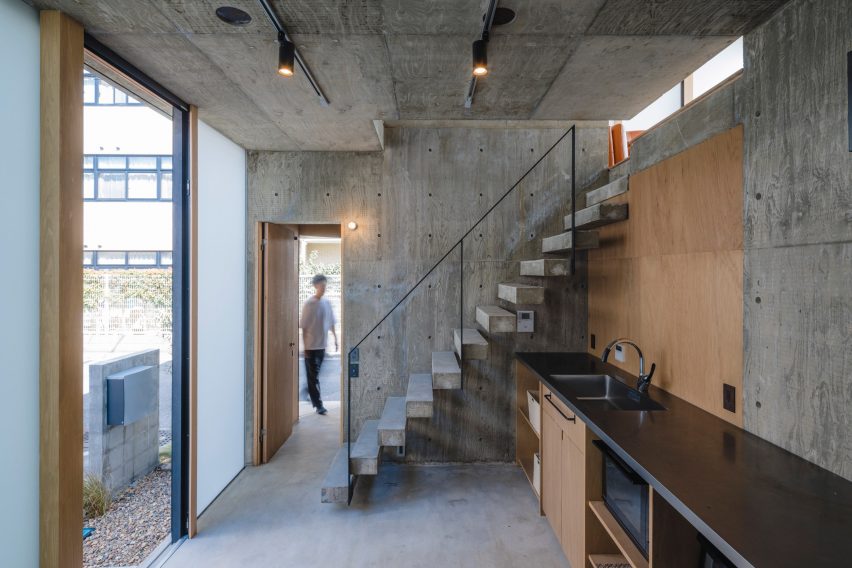
The concrete corner blocks and floor plate are left exposed and teamed with wooden floors, timber partition walls and sliding doors that allow the interiors to be easily modifiable in future.
"This house is well insulated, but even inside you can feel the texture of the exterior concrete pour," Igarashi told Dezeen. "In other words, you feel like you are inside the house but still outside."
"The client's desire for concrete and cost are of course important factors, but the design theme of this project is to allow for other uses beyond the framework of the house in the future," he added.
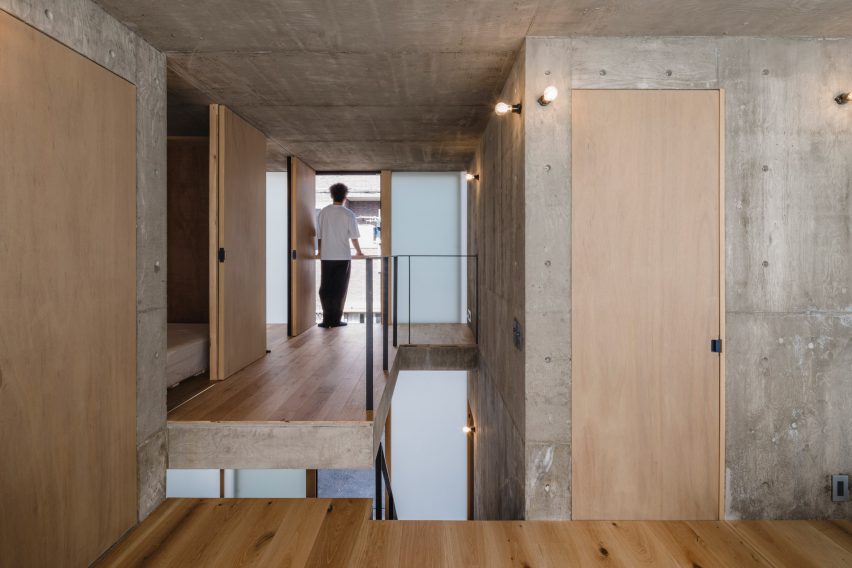
Many of IGArchitects' projects focus on creating deliberately simple and adaptable residential spaces.
Previous examples include a home designed as "one big room" and a residence supported by a single concrete column to create open living spaces.
The photography is by Ooki Jingu.